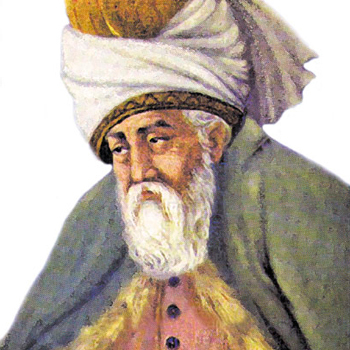The views expressed in our content reflect individual perspectives and do not represent the authoritative views of the Baha'i Faith.
Better than a thousand hollow words, is one word that brings peace. – Buddha
What impact could words have on world peace and unity?
Buddha’s quote encourages some deep thought about our daily use of words. Could a word actually bring about world peace? Was Buddha referring to the intention and genuineness behind our words? Do our words impact our relationships with each other?
I believe the single, resounding word “Yes!” answers all three questions.
Words play a significant role in our daily lives. We use words to talk to each other, we read words in books, on our Kindles, and on our Nooks. Words communicate via Facebook posts and Twitter feeds and e-mail. We see words on restaurant menus, on arrival/departure schedules at the airport, and on store displays. We can find words everywhere in our daily existence.
The words we use with each other impact our relationships because they let others know who we are and what we believe in. Words let others know what we think about them, too. When we use kind words with each other, and don’t fall prey to gossip, idle talk, or name-calling, our words can bring us closer to each other by promoting loving and positive connections.
Our words can not only impact our individual relationships with our fellow humans, but can, in turn, affect how nations relate to each other. We have often seen throughout history how hurtful words and bitter disagreements start wars and result in the destruction of not only relationships between those nations, but also the destruction of precious human life.
On a personal level, we all know that negative words can gravely harm those around us and obliterate relationships. But negative words can also impact our own spiritual development, as we can surmise from this Bible quote:
But I say unto you, that every idle word that men shall speak, they shall give account thereof in the day of judgment. – Matthew 12:36.
The Baha’i writings also discuss the detrimental effects of idle words:
He [the true seeker] must never seek to exalt himself above any one, must wash away from the tablet of his heart every trace of pride and vain-glory, must cling unto patience and resignation, observe silence and refrain from idle talk. For the tongue is a smoldering fire, and excess of speech a deadly poison. Material fire consumeth the body, whereas the fire of the tongue devoureth both heart and soul. – Baha’u’llah, Gleanings from the Writings of Baha’u’llah, pp. 264-265.
As these three quotes from Buddhism, Christianity, and the Baha’i Faith imply, words have power. When used for good and not in excess, they can promote peace and improve our spiritual progress. When used to harm, they can obliterate harmony and unity, and affect our spiritual progress.
Perhaps we also need to consider what we don’t say. Do we need to use words in all of our human interactions? Have you ever been talking to someone when you experienced that so-called ’awkward silence?’ Why is silence so difficult for us humans?
If we look at other species – like dogs and cats, for example – we notice that words aren’t integral to relationships and bonds. Aren’t animals endearing the way they snuggle up to you and seem to enjoy your company without saying anything at all? We feel that they want to be near us, yet they don’t tell us so. We can even see that lack of need for words with our own loved ones; we may know that our spouses or parents or siblings love us even when they don’t say the words, “I love you.”
Perhaps, then, the poet and theologian Rumi was on to something when he wrote “Silence is the language of God, all else is poor translation.”
World peace could be closer than we realize, if we all begin to use words in moderation. We could try to pause and think about the possible impact before updating our Facebook statuses about that detestable food in that restaurant, or Tweeting about that book we hated, or talking about that ugly dress someone wore at that wedding. Let’s think about what impact our words could have on someone else. Imagine that you were the person who cooked that food, wrote that book, or wore that dress; how would you feel?
The Baha’i teachings urge people to use kind words, as well as using words in moderation. Sometimes silence may be the best option. A kind deed or a kind word spoken to someone having a horrible day could make all the difference between feelings of loneliness and feelings of belonging. When people feel that they belong, we start building a strong foundation for world peace and unity.

















Comments
Sign in or create an account
Continue with Googleor